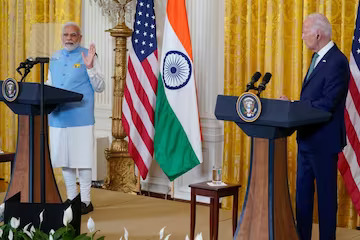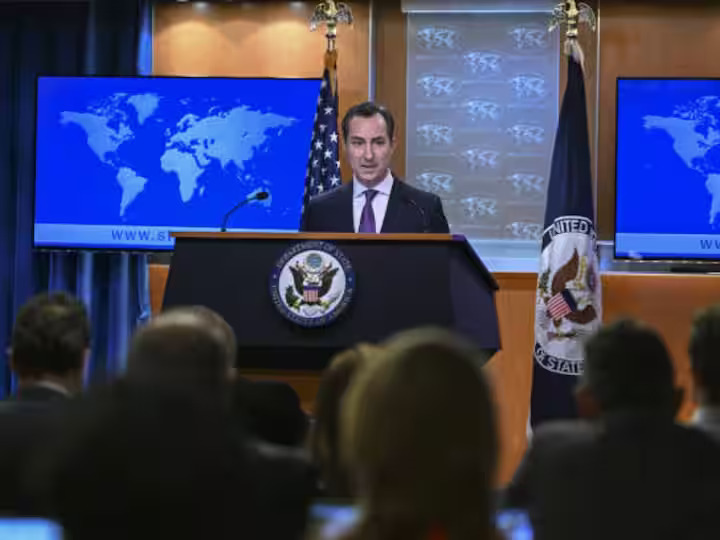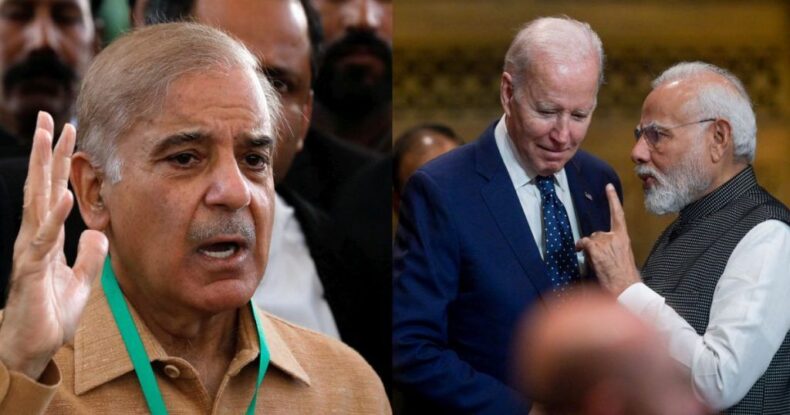The action was taken in response to statements made by India and the US that armed organizations should not use Pakistani soil as a base for assaults.
Prime Minister Narendra Modi during his US visit expressed the tensions with Pakistan and along with Biden, gave a joint statement directed towards Pakistan over its growing involvement with terrorism. Reacting to the statement and expressing its dismay, Pakistan on Monday summoned the deputy chief of mission of the US embassy.

Pakistan’s foreign office claimed that the joint statement contained “one-sided and misleading” references, adding that “it was stressed that the United States should refrain from issuing statements that may be analyzed as nothing but India’s politically motivated agenda and promoting only certain ideology of the ruling party.
It was also emphasized that Pakistan and the U.S.’s cooperation in the fight against terrorism had been advancing well and that building on this achievement would require a trust- and understanding-based environment.
Matt Miller, spokesman for the US State Department said that although Islamabad has taken many steps to dismantle terrorism in its territory, the US believes that more can be and should be done.
The issue will be brought up frequently with Pakistani officials, he added. The issues involving Lashkar-e-Taiba (LeT) and Jaish-e-Mohammad, have also been brought up several times to permanently dismantle terrorist activities in the territory along with other terrorist organizations.
Modi-Biden Joint Statement on Pakistan
Both India and the US gave out a joint statement during the recent US visit of PM Modi, criticizing terrorism and the violence it has perpetuated all over the globe. Modi and Biden urged coordinated action against all terrorist organizations on the UN’s list, including those with ties to Pakistan, such as Lashkar e-Tayyiba (LeT), Jaish-e-Mohammad (JeM), and Hizb ul-Mujahideen. Both India and US demanded justice for all the victims of the 26\11 attack and the Pathankot attack in which the terrorists are said to have direct connections with Pakistan.

LeT was responsible for the 2008 Mumbai attacks that left more than 160 people dead, while Jaish-e-Mohammed took credit for the 2019 Pulwama attack that left 40 paramilitary jawans dead.
The long-traced tension between India and Pakistan since the partition has only grown over the years. India and Pakistan have fought three wars since gaining their independence from Britain in 1947, two of which were fought over Kashmir, a Muslim-majority State in India over which both the countries claim their rule and this division has only added struggle and death numbers in the valley.
The first such battle between the two nuclear-armed South Asian neighbors since a truce in 2021, according to Pakistan’s army, occurred on Saturday and resulted in the deaths of two civilians in firing across the Line of Control, the de facto border in Kashmir, by Indian forces.
Since the late 1980s, India claims Pakistan supports armed organizations fighting Indian security forces in its portion of Kashmir, while Pakistan rejects all such charges and claims it only supports the emancipation of Kashmiris functioning in a very diplomatic form.
Imran Khan’s Reaction to the Statement
Even though Islamabad had made “countless trips” to the US, according to the former Pakistani prime minister Imran Khan, the joint statement reduced Islamabad to nothing more than a “promoter of cross-border terrorism in India.”
Our democracy, the rule of law, and the entire economic and institutional system are all disintegrating before our very eyes as a result of the imported government experiment, which has also left Pakistan irrelevant on the international scene, Khan expressed through his Twitter account.













